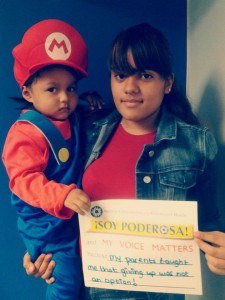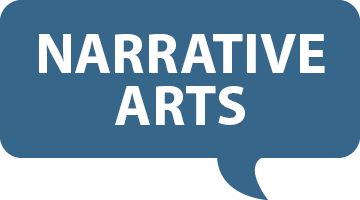What is a story-bank and how can we build one?

Photo Credit: The National Latina Institute for Reproductive Health
A story bank is a collection of narratives that you can easily draw on for an interview with a news reporter, a speech you’re giving about your work, a fundraising letter, a meeting with a legislator, or another purpose. By “banking” and indexing stories, you can have them on hand—rather than having to sort through your memory when you need a story. Following are tips on how to create and use a story bank.
Identify your goals for the story bank.
If you’re going to spend time gathering stories, be clear on what you hope to achieve and whom you hope to move. Do you aim to sway voters in a particular district or raise funds from your members? Bolder Giving has an online story library of people from across the income spectrum who give away large percentages of their money; the goal is to inspire others to do the same. Sometimes your goal might be to move your storytellers as much as your audiences. The National Latina Institute for Reproductive Health campaign ¡Soy Poderosa! (I Am Powerful!) asks supporters to be photographed holding signs on which they’ve written “Soy poderosa because…” Gathering these micro-stories helps the organization learn about and develop its base. “In our constituency, not everyone votes,” says one staffer. “Stories are a way for them to make their voices heard in other ways.” Clearly stating your goals does not rule out serendipity or surprise; it only helps you be strategic.
Set guidelines about how to capture and share stories.
People gathering or telling stories need to know what the story should be about, how long it should be, what medium it should be in, how it will be used, and any other parameters. (See the chapter on gathering stories.) Such guidelines might be as simple as, “Using your webcam or phone, tell a story of two minutes or less about a time when you fought for human rights and what difference it made; your video may be shared publicly online or in any of our organization’s materials.” You might produce stories for your bank, or invite your constituents to “deposit” theirs. Not all story banks are public; some groups keep stories private until they need one.
Index or tag your stories so that you or other users can easily retrieve them.
“Many organizations already have a wealth of stories through the work they do every day—they just don’t save them anywhere. That’s like having all of your money scattered around your house.” —Elizabeth Prescott, formerly of Families USA, in the journal free-range thinking
Use tags, keywords, database fields, or other indexing tools to call up the right story for the right occasion, such as for a reporter on deadline. The Earned Assets Resource Network (EARN) provides matched savings accounts for low-income people saving for education, business, or housing. A grant from the Levi Strauss Foundation enabled the organization to build a “story engine” into its database, so the entry for each person—a saver, a donor, or other constituent—contained new fields about their story, public-speaking skills, and so on. EARN could now easily retrieve stories to respond to press inquiries, motivate savers, or cite in fundraising letters and on its website.
Learn from experience.
Today’s web-tracking tools enable nonprofits to have a good sense of how many people see a given story online, how much time they spend on it, and whether they finish it. The comments section gives qualitative feedback from your audiences. No matter what your goal with story-banking, it helps to know at least who and how many people are reading, listening, or watching and what they think. The data can help you answer whether and how your story bank is helping you achieve your goals; and if it’s not, then it may be time to adjust your goals or improve your story-banking procedures.
Further exploration:
- “How to Build a Storybank,” by Elizabeth Prescott, the former story-bank supervisor for Families USA.
